It started with an umbrella. Correction. It started with three umbrellas. I knew I’d need an umbrella in Paris, and so one day, when I was passing by the souvenir shops across the river from Notre Dame, I picked one up for €5, figuring it would last through the winter.
I was wrong. The first storm my €5 umbrella witnessed, a gust of wind flipped it inside out, making it nearly unusable. I managed get by for a few more weeks, but as the rains shifted from warm summer drizzles to chilly autumn storms, I was ready to upgrade. This time I bought an umbrella for €8. But it, too, didn’t survive.
When I was in London in December, during a particularly wet and windy snowstorm, I tossed my battered €8 umbrella directly into a trash bin and dashed inside a Boots pharmacy across the street. I was stunned when I realized the umbrella I had grabbed from the display cost £27 (around $40).
“Twenty seven pounds?” I said to the cashier. “Seriously?”
“Oh, it’s a great umbrella,” the cashier assured me.
I reluctantly handed her my credit card.
The first couple of times I used my £27 umbrella, I was terrified. Every burst of wind that blew, I could feel it quiver. The tag promised me that my umbrella could withstand 60% stronger winds than ordinary umbrellas. But I was not a believer.
The fifth time I used my £27 umbrella I noticed that it wasn’t opening properly. I found shelter under an archway at the Louvre, and inspected the underside. Broken. I checked my weather app and realized it was set to rain for the next week in Paris. Could I live under the archway?
Probably not.
I had no choice but to head out in the rain, which had evolved from a light sprinkling to a full downpour. Thirty minutes later, back at my apartment, my down coat soaked, my trousers soaked, my sweater/socks/under-layer soaked, I threw my £27 umbrella onto the floor, turned up the heat, and crawled into bed, alone.
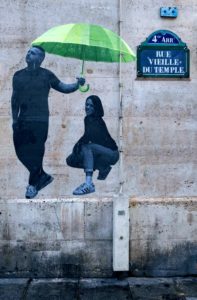
I’m sure you realize that this isn’t really about umbrellas. It’s about travel. More specifically, it’s about the frustrations of long-haul, solo travel.
Travel is supposed to be relaxing. It’s supposed to be fun. You go on holiday to get away from the chaos of your reality, to escape, to see the sights, to eat delicious food, to max out your credit cards, to experience somewhere unfamiliar. Solo travel, in particular, is a form of liberation. It can be life altering. I get that. I’ve felt that. It’s empowering to face the world alone, responsible for nobody but yourself, not needing or wanting anyone to bring you happiness. It can feel like a tremendous accomplishment. You feel like you can do anything.
But I find it impossible to sustain that energy over the long-haul. Eventually whatever it is you’re trying to escape catches up with you. Eventually that liberating feeling comes back to say, “What the hell do you think you’re doing here? What are you trying to prove?”
I think something a lot of folks don’t realize about travel — especially long-haul solo travel — is how difficult it can be, how alienating it can feel. Yes, travel of any kind is an economic privilege. I am lucky that I have the means to be able to do what I’m doing. But it can also be full of unexpected challenges, challenges that no amount of money can help you circumvent.
I imagine it’s hard for many people to comprehend spending weeks completely alone, especially in a place where you don’t fully speak the language. When people ask me how I’m doing, their questions tend to be about how much fun I’m having, what museums I’ve gone to, the photos I’ve taken, what my favorite café is, how many crêpes I’ve eaten.
Here’s my confession: I’ve been in Paris for over five months, and I haven’t eaten a single crêpe. If only life were as easy as crêpes and cafés and museums, as simple as the moments captured in my photographs.
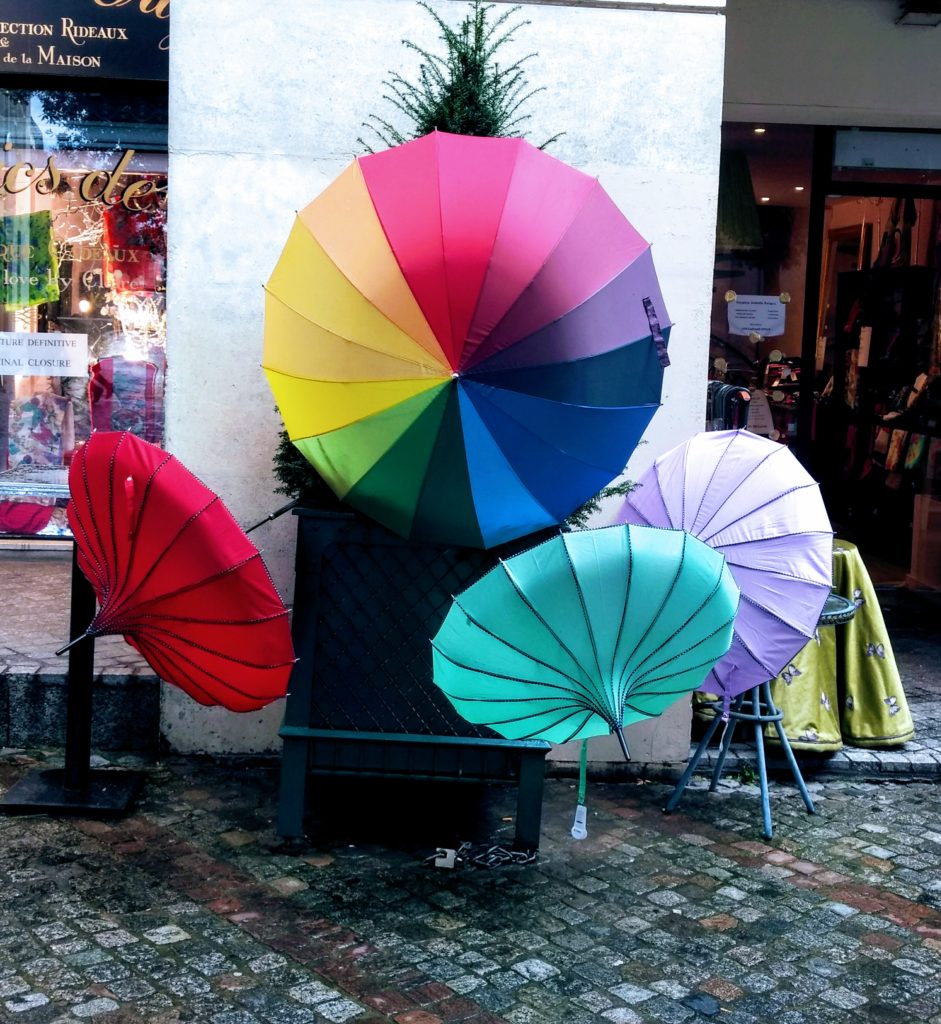
October 1, 2017 was the night of the mass shooting in Las Vegas. I found out about the massacre on the afternoon of the 2nd. That was the day Tom Petty died. I couldn’t sleep the night of the 2nd, and the next day, exhausted, I put on my headphones and walked through Paris listening to Petty’s Wildflowers. I didn’t go anywhere in particular, didn’t feel like going to a restaurant or a bar, didn’t feel like exploring a museum. I walked across the Seine and meandered around the Right Bank before coming back to the Left. Tourists were posing for photos on the Pont des Arts. Locals were drinking coffee at outside cafés. Everything around me seemed so normal.
Except me. I would have given anything to just hug someone that day.
Perhaps I could have hidden myself in the vastness of Paris. Perhaps that would have helped me let go of that other world. But there are things in life I can’t escape. In truth, there are things in life I don’t want to escape, no matter how far I roam.
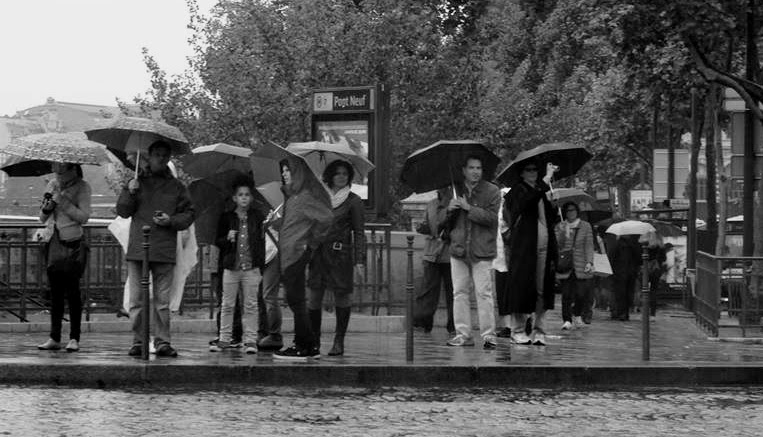
I realized a few days ago while strolling along the river that the day I leave Paris will be the 5-year anniversary of the first day of the last long-haul solo trip I took, back when I was a young, naïve girl of 41. At the time, I was struggling with the fact that I’d likely never have children; it wasn’t that I wanted children, but it was more the realization that I was getting close to the age where that would no longer be an option. I felt that boarding the plane would signify the end of that possibility.
For much of that trip I felt exposed to myself, to where I was in life, to the uncertainty of where I was going. I spent days doing nothing but watching YouTube videos and binge-eating carbs. Some days I barely left the apartment. One day in a small town in Scotland I watched The Thorn Birds in its entirety.
It was a good trip, a trip that taught me so much about life and the world and my place in the world, but at the same time I was often miserable. I’ve never been able to explain it to anyone, but that misery felt luxurious. It felt necessary.
When I returned to the States, I was ready for the next phase of my life, whatever that was. It didn’t surprise me that I soon started a relationship with a man, one that seemed like a game changer. Unfortunately, it was a game changer, but not in the way I thought it would be; it was a relationship that I fear killed the last glimmer of hope that there will ever be more in my life than just me. My travels might have helped me mend some of the broken bits inside of me, but that didn’t mean my life would become what I thought it would become, what I wanted it to become.
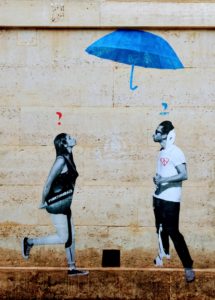
Lesson learned. Travel — long-haul travel, solo travel, any kind of travel — won’t magically fix everything; it doesn’t make the bad stuff go away; it doesn’t erase that other world, the world back home, the world over there. Life doesn’t work that way.
Umbrellas die in the real world. They don’t just die when one is traveling. But sometimes a broken umbrella feels like more than a broken umbrella. Sometimes a broken umbrella feels like the end of the world.
Still, in the end, parapluie is my favorite French word.
Update: The next day, clothes dry and spirit mended, I managed to fix my £27 umbrella. It was, once again, raining in Paris. And so I buttoned my coat. I went outside. I walked to Montmartre, umbrella in hand. For that day, it was enough to know that everything was okay. For that day, okay was all that mattered.
And you? What challenges have you faced when traveling? What are some of the lessons you’ve learned?
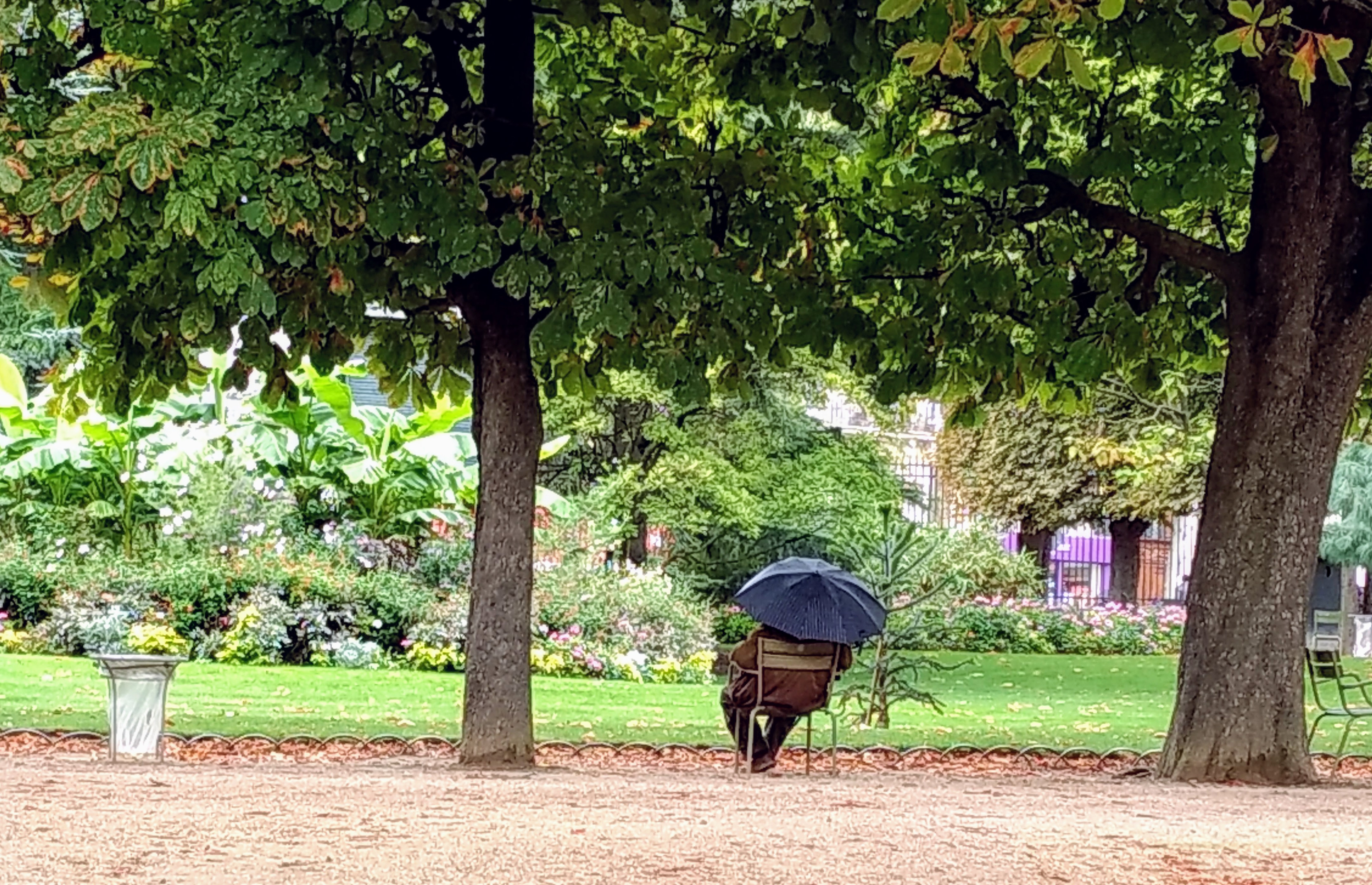



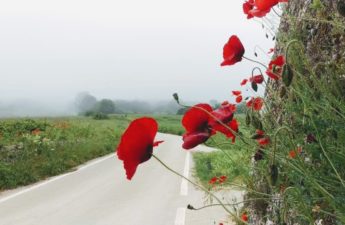
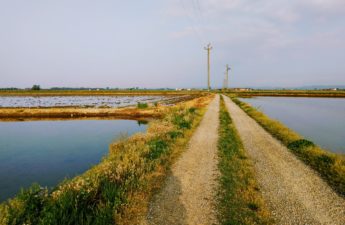
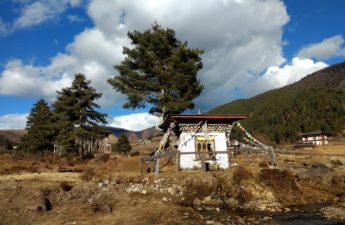
Oh, I love this one. I love how you came back around to the umbrellas, and I love all the umbrella pictures, and I also love the word “parapluie” — I was actually disappointed to discover that the Italian word for umbrella was just “ombrello,” but then I had an Italian teacher tell me that technically “ombrello” is (or should be) just for the sun, and the real word for a rain umbrella is “parapioggia,” and that made it all better.
As for the trials of solo travel, I remember them well…but also sort of miss them. I still maintain that I have never been more myself — warts and all — then when I was traveling alone.
Oh, thanks! Funny how such a seemingly-insignificant thing as a broken umbrella can lead to something else.
I think the thing for me about being alone — and in a more exaggerated way, traveling alone — is that you can’t hide behind anything: family, friends, a partner, children, even colleagues. Every moment is dependent solely on you. Of course, there’s a freedom that comes with not having to consult anyone (or take care of anyone) but, as you say, it requires (and allows) a person to fully become oneself, both the good and the bad. What I’m realizing on this trip — because at this point this is the longest I’ve been on the road (solo or otherwise) — is how deep the corners of self discovery can be. Sometimes those discoveries are a source of joy, and sometimes they’re a source of sorrow.
Parapioggia. I like it!